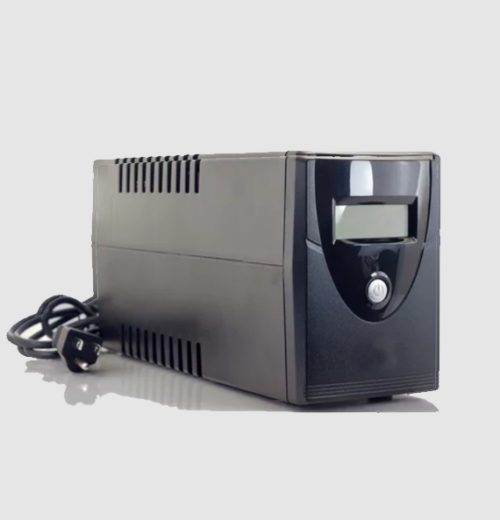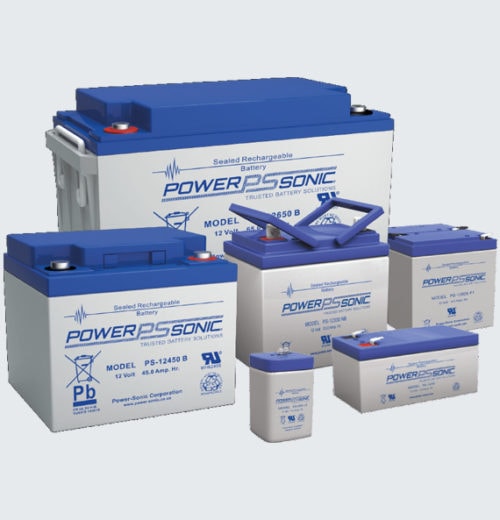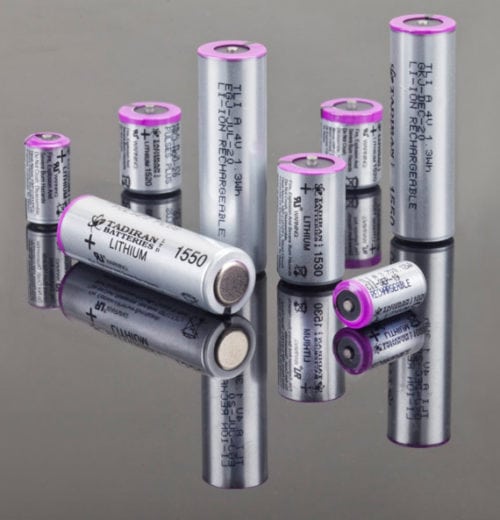Military batteries are designed to provide reliable and consistent power in the most demanding environments. They are essential for powering everything from radios and GPS systems to night vision goggles and thermal imaging devices. Thus, as a critical component of modern military equipment, they must meet stringent performance, reliability, and durability standards.
At EVS Supply, we understand the unique needs of the military and the importance of reliable equipment in mission-critical situations. Therefore, we offer custom military battery packs designed to meet the specific requirements of their applications.
Our military batteries are manufactured to meet MIL-SPEC and industry standards. This ensures they can withstand the extreme and harsh conditions in military operations.
Classifications of Military Batteries
Batteries are categorized based on their chemical composition, construction, and application. In military equipment, the following are the two main classifications:
Non-Rechargeable
Non-rechargeable batteries are also known as primary batteries. They are designed for single use and cannot be recharged; once their energy is depleted, they must be discarded and replaced.
Rechargeable
Rechargeable batteries are also known as secondary batteries. They can be recharged and reused multiple times, making them a cost-effective and environmentally friendly alternative to primary batteries.
Types of Military Batteries
In the early days, military batteries were simple alkaline and carbon-zinc batteries. However, with technological advancement, the armed forces now use a wide range of batteries designed to cater to specific needs.Here are the different types of military batteries:
Applications of Military Batteries
Military batteries have a wide range of applications in various fields of military operations. Here are some of the most common ones:

Portable Electronics and Communications Equipment
Military personnel carry various portable electronics and communication equipment in the field, including radios, night-vision goggles, GPS devices, and smartphones. Using military batteries ensures that soldiers can communicate effectively and use essential equipment for longer periods without worrying about electrical power sources.

Unmanned Aerial Vehicles (UAVs) and Drones
The use of UAVs and drones in military operations has increased significantly in recent years. These devices are used for surveillance, reconnaissance, and even targeted strikes. Military batteries can provide the high energy density needed to power UAVs and drones, allowing them to fly longer and perform more tasks.

Electric Military Vehicles
Electric vehicles are becoming increasingly popular in military operations, offering several advantages over traditional fuel-powered vehicles, including reduced noise and emissions. Military batteries can provide high energy density and long lifetimes, making them an excellent choice for powering military electric vehicles.

Naval and Submarine
Naval and submarine applications require batteries that withstand extreme environments, including high pressures and temperatures. Military batteries can provide reliable power for various systems, including propulsion, communication, and navigation.

Remote Sensors and Monitoring Equipment
In military operations, remote sensors and monitoring equipment gather critical data about the environment, enemy movements, and more. These devices require batteries to operate, and military battery packs provide reliable power for extended periods and ensure critical data is always available.

Field Medical Equipment
In combat situations, medical equipment is essential for treating injured soldiers. However, traditional medical equipment may not be suitable for use in the field, as it requires reliable and portable power sources. Military batteries are designed to provide reliable power for portable medical equipment, allowing soldiers to receive the necessary medical attention, even in remote areas.

Field Lighting
Military operations often occur in low-light conditions; battery-powered lighting ensures visibility and safety. Military batteries can power portable lighting equipment, such as flashlights and headlamps, and more powerful lighting systems are used in field operations.

Emergency Backup Power
In a power outage or other emergency, military installations and equipment require dependable backup power sources to continue operating. Military batteries can provide this, ensuring critical operations continue even during a power failure.
Key Considerations in Selecting Military Batteries
Choosing the right military battery for a specific application is crucial to ensure reliable and safe operation. Here are some key factors to keep in mind:
-
Energy Density
Energy density refers to the amount of energy that can be stored in a given volume or weight of a battery. Military applications often require batteries with high energy density to ensure extended operation without frequent recharging or replacement.
-
Durability
Military batteries must be durable enough to withstand harsh environments and frequent use. In addition, they must operate under extreme temperatures, pressures, and vibrations without degrading performance or safety.
-
Safety
Military batteries should be designed to minimize the risk of thermal runaways, which can lead to fires or explosions. They should also resist damage from impact, shock, or other external factors.
-
Cost
Military batteries are often more expensive than commercial batteries due to their specialized design and performance requirements. However, it is essential to balance the cost of the battery with its performance and reliability requirements to ensure that it meets the application's needs.
-
Environmental Impact
Military batteries should be manufactured with minimal environmental impact in mind. They should be made with materials that are environmentally friendly and recyclable. The disposal of military batteries should also be carefully managed to minimize environmental impact.
-
Maintenance and Logistics
The battery should be easy to maintain and service in the field, and spare parts and replacements should be readily available. The logistics of transporting and storing the battery should also be considered to ensure efficient and safe operations.
EVS Supply: Your Go-To Partner for All Your Military Battery Needs
At EVS Supply, we take pride in providing high-quality military battery packs that meet the stringent requirements of the defense industry. Our custom-engineered battery packs are designed to cater to a wide range of applications, including defense vehicles, GPS and navigation systems, communications gears, and more. In addition, our SAFT batteries provide exceptional durability, energy density, and resistance to environmental factors, ensuring they can withstand even the toughest conditions.
As an ITAR-certified supplier and manufacturer, we are committed to providing our customers with the highest level of quality and service. We work closely with our clients to understand their specific requirements and design battery packs that meet their needs.
Contact us to learn more about our products and services, or request a quote today!
contact-us